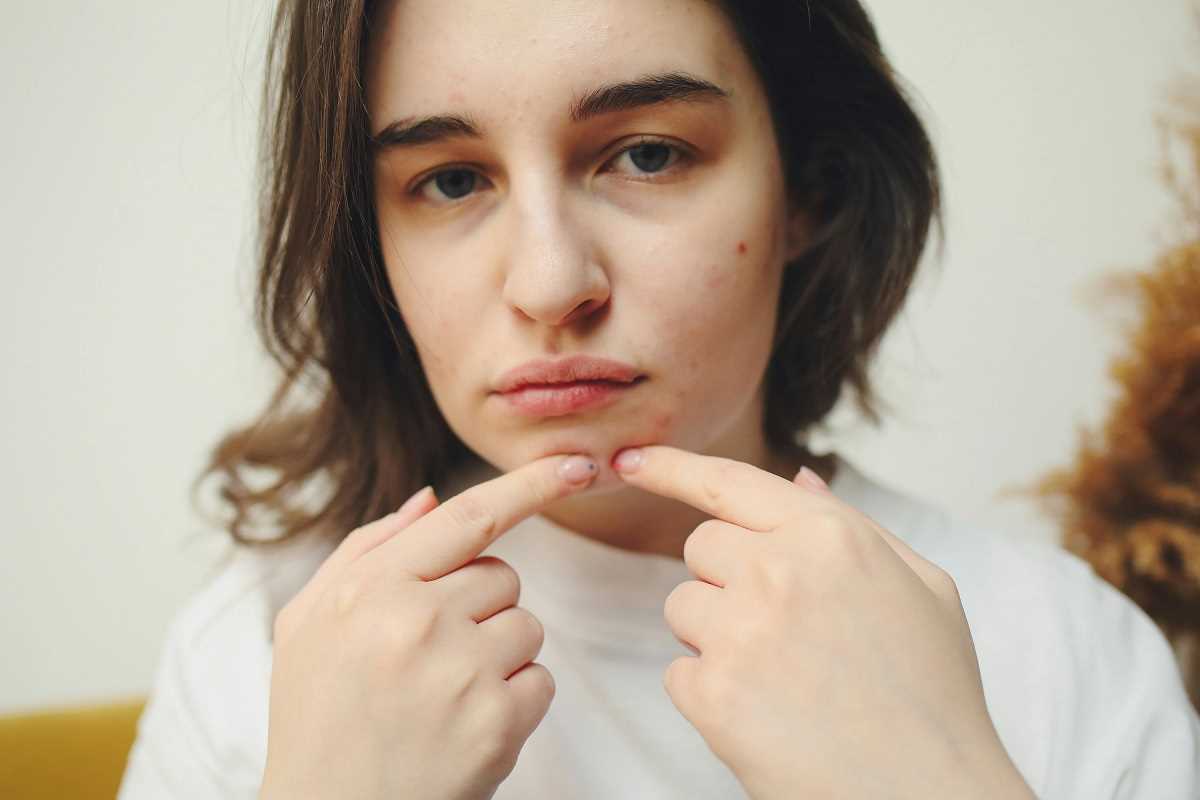Hot flashes are a common issue that many people face, especially women going through menopause. These sudden feelings of heat can be uncomfortable and, at times, overwhelming. If you’ve experienced hot flashes or know someone who has, understanding their causes and learning how to manage them can make a big difference. Below, we’ll explore what hot flashes are, why they happen, and practical ways to handle them.
What Are Hot Flashes?
A hot flash is a sudden and intense feeling of heat that spreads over the body, often most noticeable in the chest, neck, and face. They can cause sweating, a faster heartbeat, and even chills once the flash passes. Some people might also notice their skin turning red, like a blush or sunburn. Hot flashes usually last a few seconds to several minutes, though their frequency and intensity vary from person to person.
While hot flashes are closely linked to menopause, they aren’t exclusive to it. Men and younger women can also experience them due to certain medical conditions, medications, or lifestyle factors. Despite how bothersome they may be, hot flashes are a normal part of life for many people.
Common Causes of Hot Flashes
Hot flashes often occur because of changes in hormone levels, particularly a drop in estrogen during menopause. But there are other potential triggers, too, including:
- Stress: Emotional stress can lead to hot flashes.
- Dietary Choices: Spicy foods, caffeine, and alcohol may make hot flashes worse in some people.
- Environmental Factors: Warm weather, hot rooms, or layers of clothing can contribute to overheating.
- Medications: Some medications, like certain antidepressants, can cause hot flashes as a side effect.
- Health Conditions: Conditions like thyroid problems or infections may also trigger hot flashes.
Understanding what causes your hot flashes is the first step in managing them effectively.
Simple Tips for Managing Hot Flashes
If you’re dealing with hot flashes, don’t worry—there are lots of ways to reduce how often they happen and make them less intense. Small lifestyle changes and healthy habits can make a big difference. Here are some tips to help you stay cool and comfortable:
- Dress Smart - Choosing the right clothing can help you manage hot flashes. Wear light, breathable fabrics like cotton, and dress in layers. That way, if you feel a hot flash coming on, you can quickly take off a layer to cool down.
- Stay Cool - Keep the temperature around you as comfortable as possible. Use a fan or air conditioner at home, especially at night. You can also carry a small portable fan or a cooling towel when you’re on the go. If you feel a hot flash coming on, sipping cold water can help bring down your body temperature.
- Watch Your Diet - What you eat and drink matters. Spicy foods, caffeine, and alcohol can trigger hot flashes for some people. Try limiting these items to see if it helps. Instead, focus on a healthy diet filled with fruits, vegetables, whole grains, and lean proteins. Foods rich in soy—like tofu and soy milk—may help because they contain plant-based estrogens that can support hormonal balance.
- Exercise Regularly - Physical activity can help reduce the severity of hot flashes by improving your overall health. Aim for activities like walking, swimming, or yoga. Exercise also lowers stress, which is a common hot flash trigger.
- Practice Relaxation Techniques - Stress and anxiety can make hot flashes worse, so finding ways to relax is important. Deep breathing exercises, meditation, or techniques like progressive muscle relaxation can help keep your mind and body calm. Even a few minutes a day dedicated to relaxation can make a difference.
- Stay Hydrated - Drink plenty of water throughout the day to stay hydrated. This can help regulate your body temperature and prevent the symptoms of overheating.
- Track Your Triggers - Keeping a journal can help you identify patterns. Write down when your hot flashes occur along with details about your environment, diet, and stress levels. This can help you spot and avoid specific triggers.
Tips for Sleeping Through Hot Flashes
Hot flashes don’t just happen during the day—they can strike at night too, interrupting sleep and leaving you feeling drained the next morning. Nighttime hot flashes, also known as night sweats, can make it difficult to stay comfortable and well-rested. But there are steps you can take to improve your sleep quality.
- Create a Cool Sleeping Environment - Keeping your bedroom cool is one of the best ways to manage night sweats. Use a fan or air conditioner to lower the room temperature, and consider opening a window for better air circulation. You might also find it helpful to use a cooling mattress pad or pillow designed to regulate body temperature.
- Choose the Right Bedding - Your choice of bedding can make a big difference. Opt for lightweight, breathable fabrics like cotton or bamboo for sheets and pajamas. Avoid wearing heavy or tight-fitting clothes to bed, as they can trap heat and make hot flashes worse. Layering lightweight blankets can also help you adjust to temperature changes quickly.
- Stay Hydrated - Drinking water throughout the day keeps your body hydrated, which is important for maintaining a stable body temperature at night. Keep a glass of cool water by your bedside so you can take a few sips if a hot flash wakes you up.
- Establish a Calming Routine - Preparing your body and mind for sleep can help reduce the impact of nighttime hot flashes. Spend at least 30 minutes before bed doing something relaxing, like reading, meditating, or listening to soothing music. Avoid screen time right before bed, as the blue light from devices can make it harder to fall asleep.
- Avoid Triggers Before Bed - Certain foods, drinks, and activities can provoke hot flashes, especially before bedtime. Spicy foods, alcohol, and caffeine are common culprits that might disrupt your sleep. Instead, opt for light and calming options, like herbal tea or a small snack containing whole grains or protein.
- Practice Relaxation Techniques - Stress and anxiety can make hot flashes more intense and frequent. Introducing relaxation exercises, like deep breathing or progressive muscle relaxation, into your bedtime routine can help keep your body calm and improve your quality of sleep.
- Keep a Sleep Diary - If nighttime hot flashes continue to disrupt your sleep, consider keeping a diary to track your habits and sleep patterns. Write down what you eat and drink in the evening, how well you sleep, and when you experience night sweats. This information may help you identify triggers and make adjustments to your routine.
- Talk to Your Doctor - For persistent or severe night sweats, a healthcare professional may recommend additional treatments to help you rest easier. Hormone replacement therapy or other medications might be options to explore if lifestyle changes alone aren’t enough.
By following these tips, you can create a sleep environment and routine that help you stay comfortable, even when hot flashes strike. Taking small steps to improve your nighttime habits can lead to better rest, leaving you refreshed and ready to take on the day.
Over-the-Counter and Medical Options
Sometimes, lifestyle changes aren’t enough, and people need additional help. Over-the-counter remedies and medical treatments are available to help manage hot flashes.
- Herbal Supplements: Black cohosh and evening primrose oil are popular herbal remedies that some people find helpful. However, they don’t work for everyone, and it's essential to consult a healthcare professional before using them.
- Non-Hormonal Medications: There are medications designed to treat other conditions, like antidepressants or anti-seizure drugs, that can sometimes reduce hot flashes.
- Hormone Replacement Therapy (HRT): This is a common treatment for menopausal symptoms, such as hot flashes. It replaces the hormones your body is no longer producing, often reducing the intensity of hot flashes. HRT can come in the form of pills, patches, or creams. Speak to your doctor first, as HRT can have risks for some people.
Why See a Doctor?
Hot flashes might seem like a minor inconvenience, but for some people, they can interfere with daily life. If your hot flashes are severe or don’t improve with lifestyle changes, it’s a good idea to talk to a healthcare professional. They can help you figure out the most effective treatment plan and rule out underlying health problems that might be causing the symptoms.
Hot flashes can be inconvenient, but with some adjustments and careful planning, you can make them more manageable. If you need extra support, there are both natural remedies and medical treatments that can help you feel more comfortable. Most importantly, don’t hesitate to seek advice from your doctor to create a personalized plan.
.jpg) (Image source: Midjourney)
(Image source: Midjourney) 





